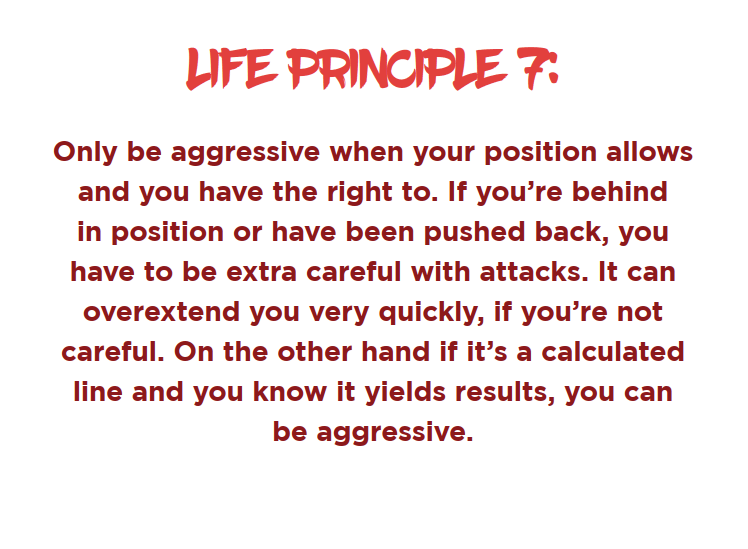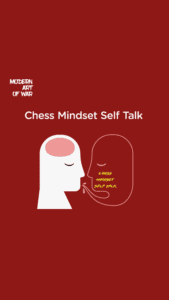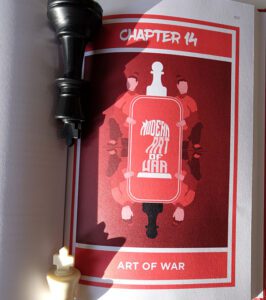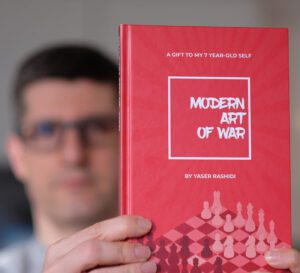From a young age, I was always fascinated by the game of chess. I found myself constantly wondering how some players could be so much stronger than others, seemingly winning from any position on the board without fail. After all, isn’t chess a game where both sides start with identical pieces, follow the same set of rules, share equal time on the clock, and have complete visibility of all elements on the board(perfect information). So, how could one player consistently outperform another?
It took me many years, and the arrival of my 40th birthday, to uncover the secret that eluded me for so long: all great players share and follow a similar winning mindset. For those who have painstakingly learned the art of strong play, this principle seems self-evident: the secret to mastering chess—and by extension, life—lies not just in knowing the moves but in cultivating the right mindset. But to those like me, who discovered it much later in life, it was a revelation. Despite being an avid reader in my youth, I had never encountered this invaluable knowledge anywhere.

This realization struck me like a bolt of lightning. I wondered why no one had shared this profound insight about “the right way to play chess” or “the rules of a winning mindset” with me when I was learning the game. I was convinced that if I had learned these concepts as a child, my chess skills would have been far superior. Even as an adult, understanding these principles significantly improved my game, enabling me to beat many opponents who were once far beyond my reach.
Initially, I had no intention of writing a book. I merely began jotting down these insights and principles like precious treasures in an Excel file. Over the course of a year and a half, the file grew to encompass a comprehensive collection of strategies for a winning mindset in chess. It was then that I decided to turn these notes into a book and named it “The Modern Art of War: A Gift to My 7-Year-Old Self.” It was then that I decided to compile these notes into a book titled “The Modern Art of War: A Gift to My 7-Year-Old Self.” The title is a tribute to my younger self, a reflection of my wish that I had possessed such guidance when I was just beginning to explore the complexities of chess.
However, the principles of a winning mindset extend far beyond the 64 squares of a chessboard. They are equally applicable in any competitive scenario involving limited resources—be it navigating a business negotiation, making strategic life decisions, or managing a crisis. This is why, throughout the book, I have included sections called “Life Lessons,” which translate each principle into real-world situations. These lessons are designed to help readers integrate these concepts into their daily thinking, making them as habitual as any other routine.

Adaptation and Foresight: Cornerstones of Strategic Thinking
A key component of a winning mindset is adaptability and foresight. In chess, as in life, circumstances can change in an instant. A seemingly favorable position can deteriorate rapidly with a single miscalculated move. The most successful players—and the most accomplished individuals—are those who maintain vigilance and are ready to pivot their strategies as the landscape evolves. They don’t merely react; they anticipate. This ability to foresee and prepare for potential challenges is what distinguishes true masters in any field.
Patience and Playing the Long Game
Another vital principle is the importance of patience and long-term planning. Whether on the chessboard or in life’s various arenas, not every immediate gain translates into a lasting advantage. Often, success is about strategic positioning—laying the groundwork for future triumphs by making astute, calculated decisions in the present. In the context of negotiations, this might mean conceding a minor point to secure a more significant advantage down the line. In personal development, it could mean forgoing short-term comforts in favor of long-term benefits.
Resilience and Adaptability: The Hallmarks of a Champion
One of the key lessons from “The Modern Art of War” is that resilience and adaptability are essential. In both chess and life, plans often go awry. The ability to adapt to new conditions without losing sight of the overarching strategy is what sets successful individuals apart. They understand when to hold their ground and when to shift tactics, when to go on the defensive and when to seize the offensive.
The Power of Self-Awareness and Continuous Improvement
The book also underscores the significance of self-awareness and the pursuit of continuous improvement. Great chess players are perpetual learners, always looking for ways to refine their craft. They scrutinize their past games, not just to celebrate their victories but to analyze their mistakes, understanding where they faltered and how they can improve in the future. This principle is equally applicable to life. Every setback is an opportunity to learn, grow stronger, and better prepare for the next challenge.
The Discipline of Strategic Thinking
The principles outlined in this book also emphasize the importance of discipline, both in chess and in life. Developing habits that lead to success—such as critical thinking, strategic planning, and sound decision-making—is crucial. It’s about fostering a mindset that constantly seeks the best possible outcome in any situation and works relentlessly to achieve it.
As I continued to compile these insights, my book evolved into a manual that I wished I had as a young chess enthusiast. It serves as a guide not only for improving one’s chess game but also for mastering the game of life. By embracing the principles of a winning mindset, you can navigate the complexities of both chess and life with greater confidence and clarity. You can learn to make the right moves, whether on the chessboard or in the broader game of life.
Applying Chess Principles to Life’s Challenges
The strategies and principles within “The Modern Art of War” are designed to help you transform your approach to life’s challenges. It’s not just about winning games; it’s about cultivating a mindset that prepares you for any situation, allowing you to make every move count towards reaching your highest potential. The greatest victories, after all, come not from defeating others but from mastering oneself.
As I continued to write and compile these insights, my book grew into a manual that I wished I had as a young chess enthusiast. It is a guide for anyone looking to improve not just at chess but at decision making and the game of life. By mastering the principles of the winning mindset, you can better navigate the complexities of both. You can learn to make the right moves—on the chessboard and beyond.
Whether you’re a beginner just starting to learn the basics of chess or an experienced player looking to refine your strategy, this book is your companion on the journey to personal and strategic mastery. By understanding and internalizing these concepts, you will be better equipped to face the challenges of both chess and life, making calculated decisions that lead to success.
Embrace the lessons of chess strategy and personal development intertwined within “The Modern Art of War,” and let them guide you in your pursuit of excellence.





2 Responses
Wow! In the end I got a blog from where I can actually get helpful
information regarding my study and knowledge.
Hello.
Good cheer to all on this beautiful day!!!!!
Good luck 🙂